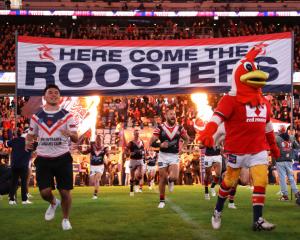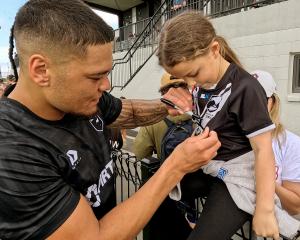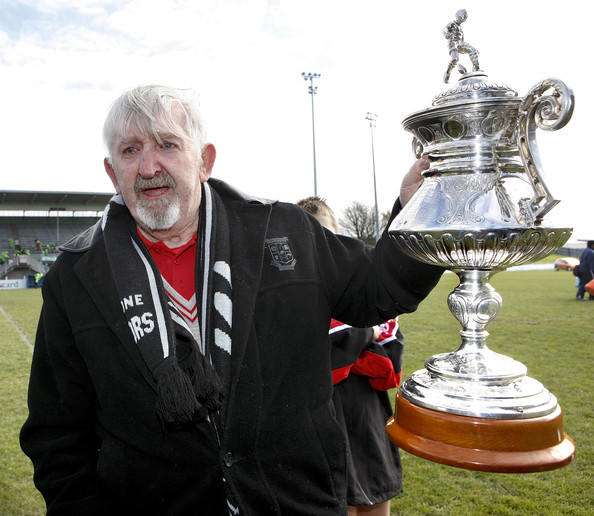
Whitehead has been described as the most decorated man in New Zealand rugby league, and made a colossal contribution to the game in Canterbury and nationally. He was the holder of life memberships with nine different rugby league bodies (and another in bowls), a Queen’s Service Medal, a Sport Canterbury Lifetime Achievement award and a string of other honours.
Whitehead lived in Christchurch, where he was known affectionately as ‘Rugby League Bill’. He gave up thousands and thousands of hours of his own time during his 60 years of service to the game as a manager and administrator, along with some notable cameos as a player and referee.
William Albert Whitehead was born in Reefton in 1931 and lived in the West Coast town of Inangahua until 1947. He was a keen follower of rugby league as a youngster, telling the tales of his uncle, Bill Clark, outsprinting All Blacks and Kiwis legend George Nepia to score a try for Inangahua against Canterbury in 1937, and watching a Ray Nuttall-inspired West Coast side defeat the touring Great Britain ‘Indomitables’ in 1946.
“We didn’t have schoolboy rugby league on the Coast, but I played rugby union in Nelson after we shifted there in 1947,” Whitehead recalled in a 2015 interview.
“I played two years for them in ’47-48, but I ran a professional mile in 1949, and I got given (the equivalent of) two dollars and a ribbon. That made me a ‘professional’, so I couldn’t play rugby union anymore. I had to wait until I moved to Christchurch in 1951 and the following year I played rugby league for Papanui reserves.”
Marist (known as Marist-Western Suburbs from 1968) was formed in 1952. Whitehead began a long association with the club soon afterwards, firstly as a player for the reserves side, then as a team manager, vice-president, secretary and – from 1982 to 1985 – president.
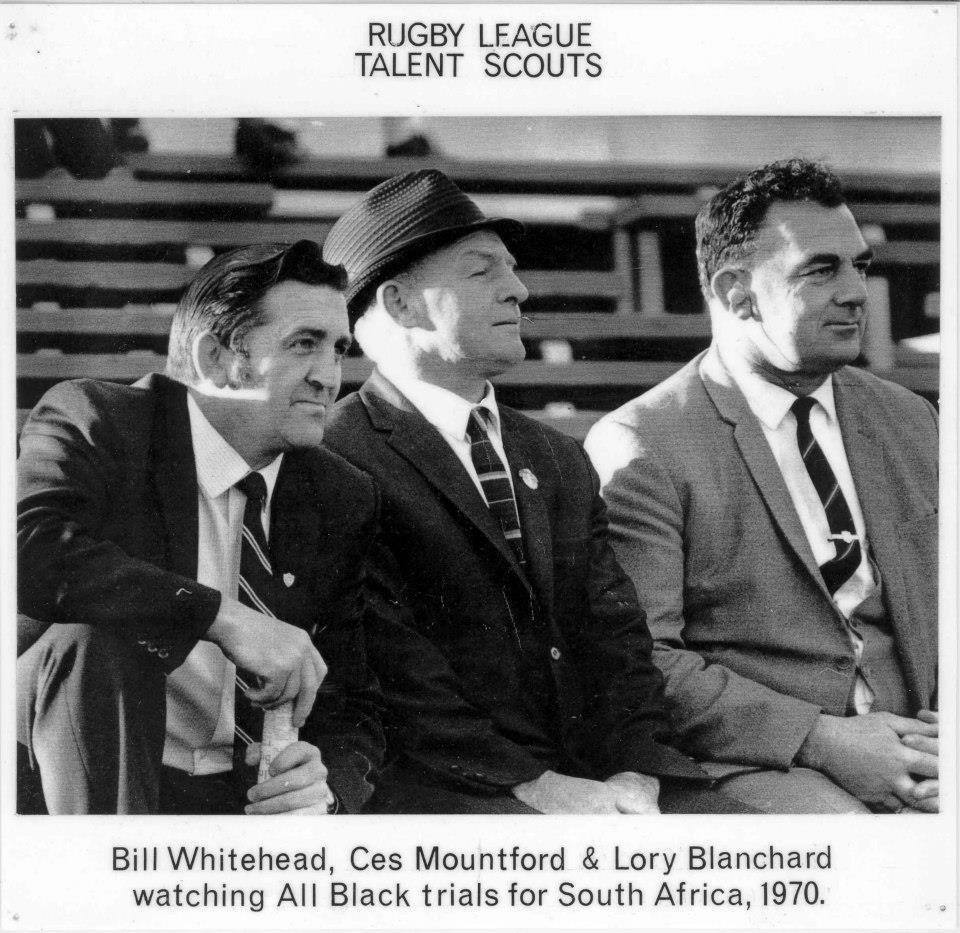
“I managed the premiers for three years, and in my first year I told Jim Amos, the famous coach, about a player in reserves he should have a look at. Jim said: ‘Just make sure you’ve got the jerseys’. So I quickly learned my place,” he laughed.
Whitehead made one appearance for the club’s premier side – as an emergency replacement in 1965.
“We got to Hornby and we were one player short. (Coach) Father Pearce said: ‘I’ll have to find a pair of boots’ – he was going to play himself. I said: ‘I’m ahead of you!’. So I got to play my one and only premier game.
“We got beaten 20-0, and I remember it like it was yesterday. They had three Kiwis in their side – Ian Drayton, John Bray and Brian Langton. I went into the Hornby rooms and said to (Test winger) Langton: ‘You won’t get any tries today’. He said: ‘Why not?’, and I said: ‘Because I’m marking ya!'”
Whitehead was also the manager or local manager for more than 300 teams. He was twice the local manager for Australia, Great Britain and France, and Wales once, during the national sides’ visits to Christchurch, a role he fulfilled for countless touring New Zealand and Australian representative teams. He was local manager for Kiwis sides in 1971, 1977 and 1980, while he managed the Kiwi Schoolboys four times during the 1980s – including on a tour of Australia in 1986.
His most lasting association was as the local manager for every visiting West Coast team from 1964-1989, an enduring and amicable partnership which led to a genuine career highlight in 1987, when he was awarded the Queen’s Service Medal by then-Governor-General Sir Paul Reeves.
“I was on tour in Australia managing the Kiwi Schoolboys side when I got word of that. It’s funny that, because I wrote to the Canterbury Rugby League to thank them for the nomination but I found out later it was the West Coast that nominated me.
“I was chatting away to (Reeves), and he said: ‘Another rugby league man’ – he’d just given (a QSM) to Johnny Lloyd, my old mate from Hornby. I said: ‘I wanted to ask you, where do the workers go for a beer after the ceremony? We don’t drink champagne and that kind of stuff. He said: ‘As a matter of fact, neither do I – I usually have a keg out the back, and if you hang back I’ll have one with you.’ So me and Johnny had a couple of beers with Sir Paul Reeves.”
Life membership from New Zealand Rugby League followed in 1998.
“That meant a lot, of course. There was the odd person – mainly from Auckland – that said I didn’t deserve it, but that didn’t worry me a hell of a lot,” he said with a hearty chuckle.
Whitehead received a Lifetime Achievement Award at the Canterbury Sports Awards in 2019, which was presented by Sir Peter Leitch during a visit to his Christchurch rest home soon afterwards.
Whitehead was also involved in other sports. He was media manager of weightlifting at the 1974 Commonwealth Games, co-ordinated the Rugby League Night in conjunction with the Canterbury Park Trotting Club for 30 years, and was tournament convenor for the Canterbury Licensed Trade Bowls Club, the latter earning him a 10th life membership.
But his heart lay with rugby league, and Whitehead’s enormous contribution to the code at junior levels brought him just as much pride and enjoyment as rubbing shoulders with some of the game’s greats.
Among his tireless efforts was the time he organised raffles and sponsors, including Air New Zealand, to get a Canterbury eight-year-old side to Auckland, where they played against Ellerslie and Mt Albert.
He also displayed a sharp eye for talent-spotting on occasion. “I was invited to pick five or six up-and-coming players from Canterbury to take to Cromwell to play the Kawarau Bears, with the rest of the team coming from Mosgiel. Future Kiwis Esene Faimalo and Logan Edwards were among them, as were two New Zealand Marist reps, and Russell Tuuta, who later played for New Zealand Maori.
“I was quite pleased with the five I picked, with all of them ending up with New Zealand in front of their names within five years.”
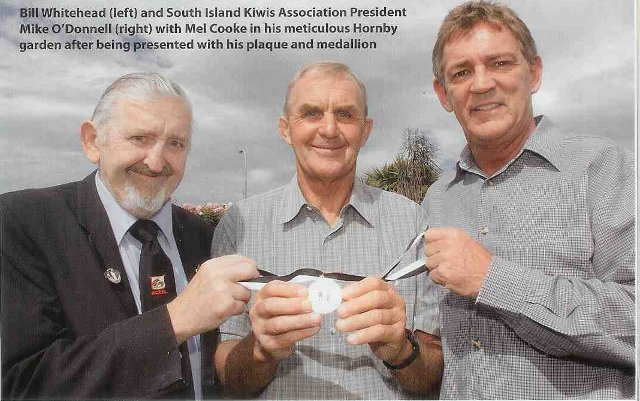
But he had no hesitation in nominating a hero of yesteryear as his all-time favourite. “My idol was Mel Cooke, who was the best footballer I’ve seen in the South Island and the best forward without any doubt; the second would probably be Charlie McBride.
“I used to pass Mel on the roads all the time – he did a hell of a lot of running. I used to say they named Pound Rd after him, because he was always pounding (the pavement).”
There are very few significant elements of Canterbury Rugby League’s post-WWII history Whitehead did not have some big or small role in: “The Pat Smith Trophy that they play for now (in the CRL premiership grand-final), I actually bought out of the petty cash at Tattersall Hotel,” he revealed in 2015.
A remarkable milestone was celebrated during a South Island Kiwis reunion at Gary Clarke’s museum in Woolston in December 2014, when Sir Peter took it upon himself to recognise Whitehead’s 60 years of service to rugby league. In a typically generous gesture, Sir Peter presented Whitehead with an engraved trophy and a voucher to take his family out to Christmas dinner – an indication of the esteem some of the game’s finest servants hold ‘Rugby League Bill’ in.
NZRL chief executive Phil Holden also sent a letter thanking Whitehead for his six decades of service.

It’s obvious the future of rugby league remained very close to his heart, and Whitehead did not want to see the foundations he and others had laid for junior and grassroots football go to waste. “I keep telling the clubs, that’s where the Mel Cookes come from. Grassroots are the most important part of our game. I’ll always appreciate my involvement with schoolboy football, and that’s where the great players come from.”
Canterbury Rugby League extended its sympathies to ‘Rugby League Bill’s’ family and friends.


